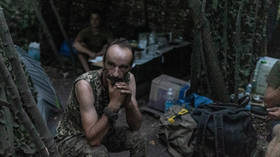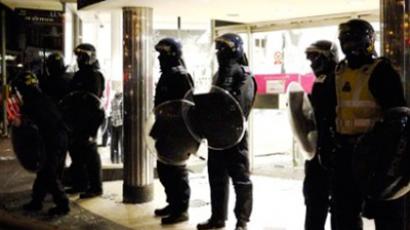Cameron pledges 'zero tolerance' despite own rowdy youth
David Cameron has been quick to call for harsh methods to struggle with the British 'moral collapse', including a 'zero tolerance' approach. He seems quick to forget about his youth as a member of a notorious restaurant-trashing club.
While a student at Oxford, the future prime minister was part of a controversial “Bullingdon Club” or “Buller” – the elite dining clique founded over 200 years ago which was known for its hard drinking and bad behavior, including vandalizing restaurants.His fellow club members included London Mayor Boris Johnson and UK Chancellor of the Exchequer George Osborne.Andrew Gimson, a biographer of Johnson, reported about the club in the 1980s: "I don't think an evening would have ended without a restaurant being trashed and being paid for in full, very often in cash…. A night in the cells would be regarded as being on par for a Buller man, and so would debagging anyone who really attracted the irritation of the Buller men."After the UK violence in August, Johnson also called for rioting and looting youngsters to be sent to tough units specializing in dealing with unruly children. As for Cameron, he listed the UK’s current problems as "Irresponsibility. Selfishness. Behaving as if your choices have no consequences. Children without fathers. Schools without discipline. Reward without effort. Crime without punishment. Rights without responsibilities. Communities without control," in a speech in Oxfordshire. And he promised that the government will review every aspect of its work to mend the UK’s “broken society" in the coming weeks.Meanwhile, some of his words could certainly be used to describe his own youth – though no one tried a “zero tolerance” approach on him.Thousands of people have been arrested and processed through courts working around the clock since violence erupted over the killing of a man in London during a police operation.Cameron defended the harsh four-year sentences handed down to Jordan Blackshaw and Perry Sutcliffe-Keenan for trying to inspire riots through Facebook, saying the sentences sent out a much-needed “tough message.” Of the 1,277 people charged by the British courts so far, two-thirds have been remanded in custody.Journalist Sukant Chandan says that those youngsters out on the streets struggling to be heard cannot be called “the lost generation.”“People are calling this the lost generation,” Chandan said. “I think this generation has actually found itself – tragically, in the way it has, because they have been ignored. Nothing is going to stop these young people; they will find some other ways of communication. These young people live in communities with each other. So you cannot stop these social networks.”














